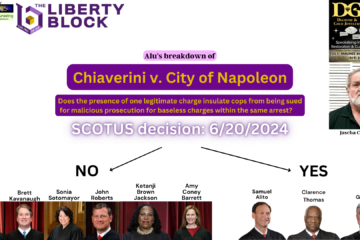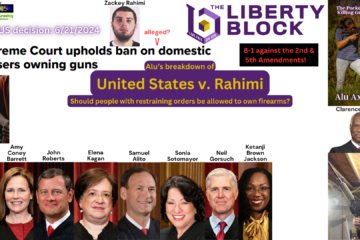By Ian Underwood
Originally published by GraniteGrok.com
I’m starting to think that maybe we should just stop talking about rights altogether.
First, because they are so easily confused with entitlements. (The right to freedom of speech, or to self-defense, is now conflated with the ‘right’ to free medical care, or the ‘right’ to avoid having your feelings hurt.)
And second, because they carry along the baggage of so-called ‘Natural Law’. Note that this doesn’t refer to natural laws, like Maxwell’s equations or Einstein’s theory of gravity. It refers to a philosophical concept — ‘a body of unchanging moral principles regarded as a basis for all human conduct’. The crucial difference is that natural laws are objective, and must be discovered and ultimately verified; while Natural Law is subjective, and must be invented and ultimately imposed.
So if we give up on rights, what’s left? Consent. Individual consent. Not the kind of ‘consent’ that is required for your fellow citizens to levy a tax on you; but rather the kind of consent that is required for someone to take one of your kidneys.
When Laplace explained his theory of orbital mechanics (how bodies move around other bodies) to Napoleon, he was asked what role God played in it. ‘I had no need of that hypothesis’ was the reply.
Similarly, if we switch from a theory of what we might call ‘governmental mechanics’ (how government relates to its citizens) based on rights, to one based on consent, we have no need for the hypothesis of Natural Law.
This is a good thing, because there’s no universal agreement on what is meant by Natural Law. You could put it to a vote, but that defeats the purpose of citing it.
Also, while consent leaves plenty of room for charity, it leaves none at all for entitlements.
That is, consent captures the original essence of rights, without the baggage that rights have accumulated over the years.
The genius of capitalism as an organizing principle for economics is that it takes something that we often think of as negative — self-interest — and harnesses it in a way that it becomes positive, without requiring people to understand, let alone agree on, any underlying philosophical or religious basis.
Capitalism really just comes down to this: My desire to help myself is most easily and reliably satisfied if I help a lot of other people — even if they’re people I don’t like, or respect, or agree with.
In much the same way, the genius of consent as an organizing principle for government is that it performs the same kind of alchemy, starting with the same raw material.
‘Consentism’ really just comes down to this: My desire to be free from interference in my life is most easily and reliably satisfied if I avoid interfering in the lives of other people — even if they’re people I don’t like, or respect, or agree with.
Note that this is essentially Hillel’s version of the Golden Rule. Not: ‘Do unto others as you would have them do unto you’, which leads directly to the entitlement state. (‘I’d love it if everyone else paid for my medical care.’) Rather: ‘That which is hateful to you, do not do to your fellow man.’ And is there anything more hateful to anyone than having someone else butting into something that’s none of his damn business?
Zig Ziglar used to say: You can have what you want if you just help enough other people get what they want.
I’m basically saying the same thing, except about actions rather than possessions: You can do what you want if you just let other people do what they want.
So what would this look like, in terms of laws? The basic idea is straightforward: ‘I don’t want anyone to do x to me. So people should be punished if they are caught doing x to someone.’
This works beautifully when x is something like murder, assault, rape, robbery, theft or destruction of property, invasion of privacy, suppression of expression or worship or association, and so on. Apart from psychopaths and sociopaths, who wouldn’t consent to refrain from those, in order to get others to refrain from them as well?
But note how everything changes when we remove the words ‘to me’ and ‘to someone’. That moves us away from crimes and torts, and towards policy: ‘I don’t want anyone to do x. So people should be punished if they are caught doing x.’
And this is where things fall apart. In short, when consent leaves the picture, so does the need for a victim. And when the need for a victim is removed, so are any meaningful constraints on what the majority can impose on the minority, leaving us with what we might call a Karenocracy™.
For a while now, I’ve been pretty zealous about taking every possible opportunity to remind people of the two major ideas of the Declaration of Independence — that governments are formed to protect rights, and that governments derive their just powers to act from the consent of the governed.
But I’m coming to believe that the first idea is actually redundant if you have the second; and that the distortion of the word ‘right’ renders it pointless if you don’t.
That is, I think that at one time, talking about rights was a useful way to express certain crucial ideas. But now I suspect that — like talking about ‘the constitution’ — it often ends up doing more harm than good, and that we would do better to focus on consent instead.


